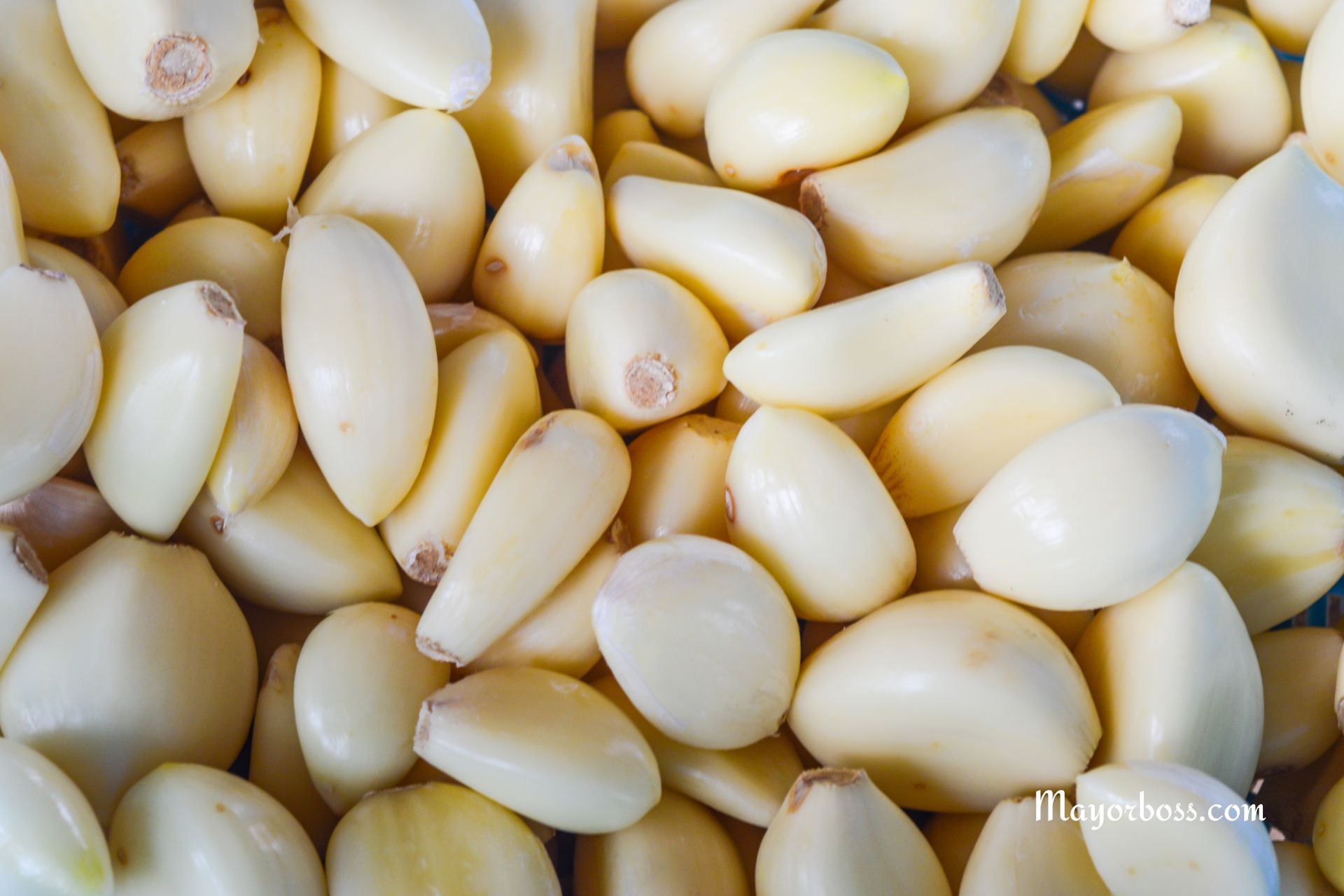6 Health Benefits of Eating Bell Peppers
Before we get into the benefits of eating bell peppers, it’s important to understand what the peppers actually are.
What are Bell Peppers?
Bell peppers or sweet peppers, scientifically known as Capsicum annuum, are fruits that belong to the nightshade family. They are commonly referred to as vegetables in culinary contexts.
There are several colors of bell peppers, including red, yellow, green, and orange.
Interestingly, the color of the peppers indicates their level of ripeness, with green being the least ripe and red being the most ripe.
Bell peppers have a unique, mild flavor and are enjoyed in various dishes worldwide.
Benefits of Eating Bell Peppers
1. Bell Peppers May Boost Your Immune System
Bell peppers are rich in vitamin C, a super antioxidant that supports your immune system and aids in the absorption of iron.
Just one medium-sized bell pepper provides over 150% of the recommended daily intake of vitamin C.
Thus by eating bell peppers, you’ll help your body fend off illnesses, such as the common cold and flu.
2. High in Antioxidants
Bell peppers contain various antioxidants, enzymes, and phytonutrients.
These compounds protect your cells from damage caused by free radicals.
Therefore, consuming bell peppers regularly may potentially reduce the likelihood of chronic illnesses such as cancer, diabetes, cardiovascular diseases, and metabolic disorders
3. Promote Healthy Digestion
You’ll be amazed at how bell peppers can help your digestion.
They’re high in dietary fiber, especially soluble fiber, which generally aids in proper digestion and prevents constipation.
In fact, one cup of bell peppers has 2.5 grams of dietary fiber. Eating fiber-rich foods like bell peppers can keep your digestive system running smoothly.
4. Bell Peppers May Improve Your Eye Health
Several studies have shown that bell peppers contain high levels of vitamins A and E, as well as carotenoids, including lutein and zeaxanthin.
These nutrients help maintain healthy eyesight and may lower the risk of age-related macular degeneration as well as cataracts.
5. Support Heart Health
Eating fresh, raw bell peppers may contribute to a healthier heart, thanks to their high content of vitamins B6 and C, as well as potassium.
According to medical research, these nutrients help regulate blood pressure and may reduce the risk of heart disease.
6. Bell Peppers May Keep Your Skin Glowing
Believe it or not, you’ll love the impact bell peppers have on your skin.
They’re packed with vitamin E, an antioxidant that helps maintain healthy skin.
Research has shown that vitamin E can decrease signs of aging and protect against sun damage.
Besides, bell peppers are filled with other essential vitamins and minerals that help keep your skin healthy.
Frequently Asked Questions about Bell Peppers
While all bell peppers are nutritious, there is a difference in their nutrient content depending on their color.
Green bell peppers are harvested earlier, making them less ripe and generally less sweet compared to their red, yellow, or orange counterparts.
As they ripen and change color, their nutrient content increases, particularly in vitamins A and C. Red, yellow, and orange bell peppers typically have higher levels of these vitamins.
However, green bell peppers are still a healthy choice.
Bell pepper seeds are edible, but they have a slightly bitter taste and can be tough to digest for some people.
It’s common to remove the seeds before consuming bell peppers to improve the overall taste and texture of the dish.
However, if you accidentally consume a few seeds, it’s not harmful.
To maintain the freshness of your bell peppers, store them in the refrigerator’s crisper drawer in a perforated plastic bag or container.
Properly stored, they can last up to two weeks.
However, it’s best to consume them within a week to enjoy their maximum flavor and nutritional benefits.
Yes, bell peppers are an excellent choice for those following a low-carb or ketogenic diet.
They are low in calories and carbohydrates, with most of the carbs coming from fiber.
Additionally, they are nutrient-dense, providing vitamins, minerals, and antioxidants that support overall health while adhering to dietary restrictions.
The nutrients and antioxidants found in bell peppers contribute to various aspects of overall health.
Their high vitamin C content supports a strong immune system, promotes healthy skin, and aids in iron absorption.
Vitamin A in bell peppers is essential for maintaining healthy vision, while vitamin E provides antioxidant support for cell membranes.
Furthermore, the carotenoids and flavonoids in bell peppers have been associated with a reduced risk of chronic diseases, such as heart disease and certain types of cancer.






